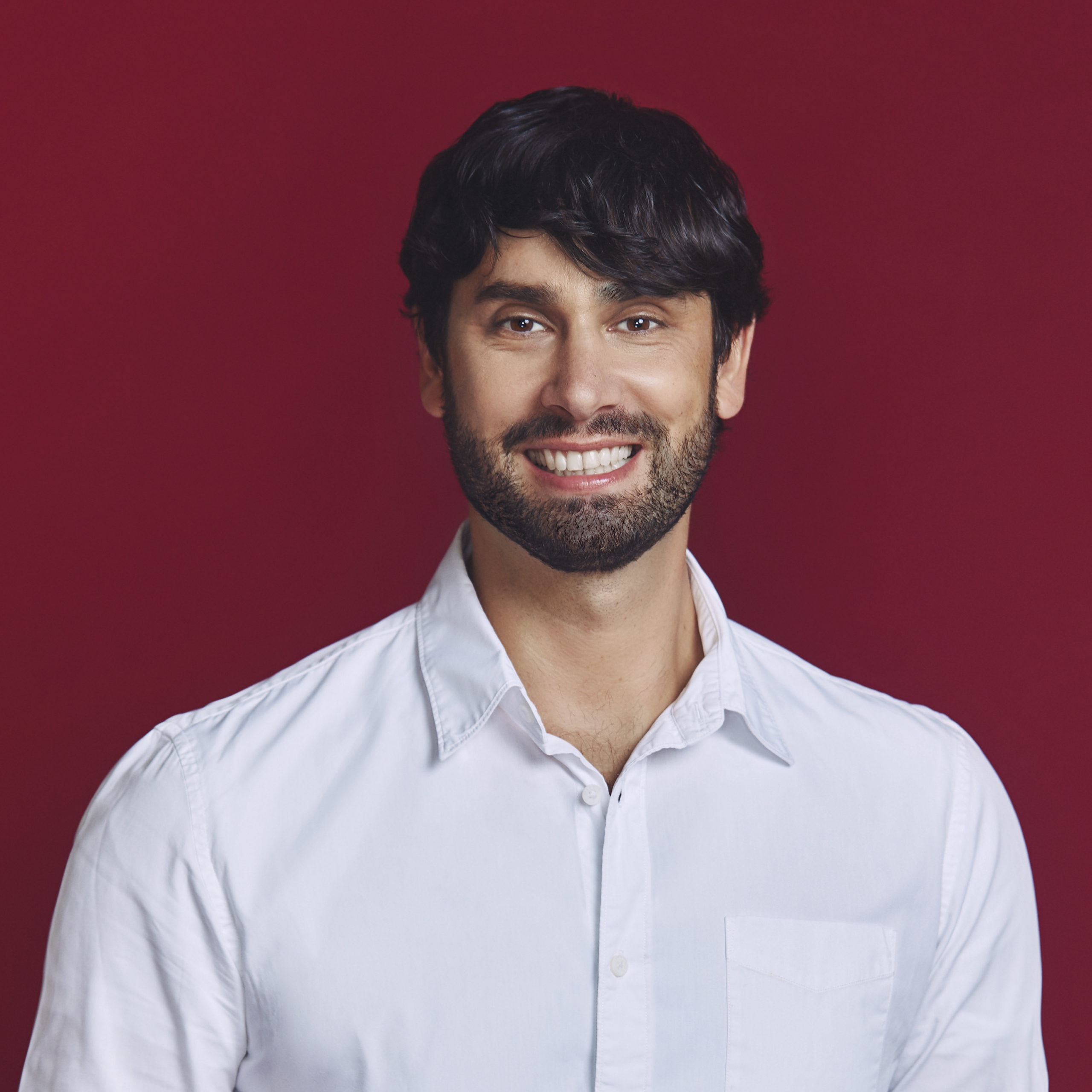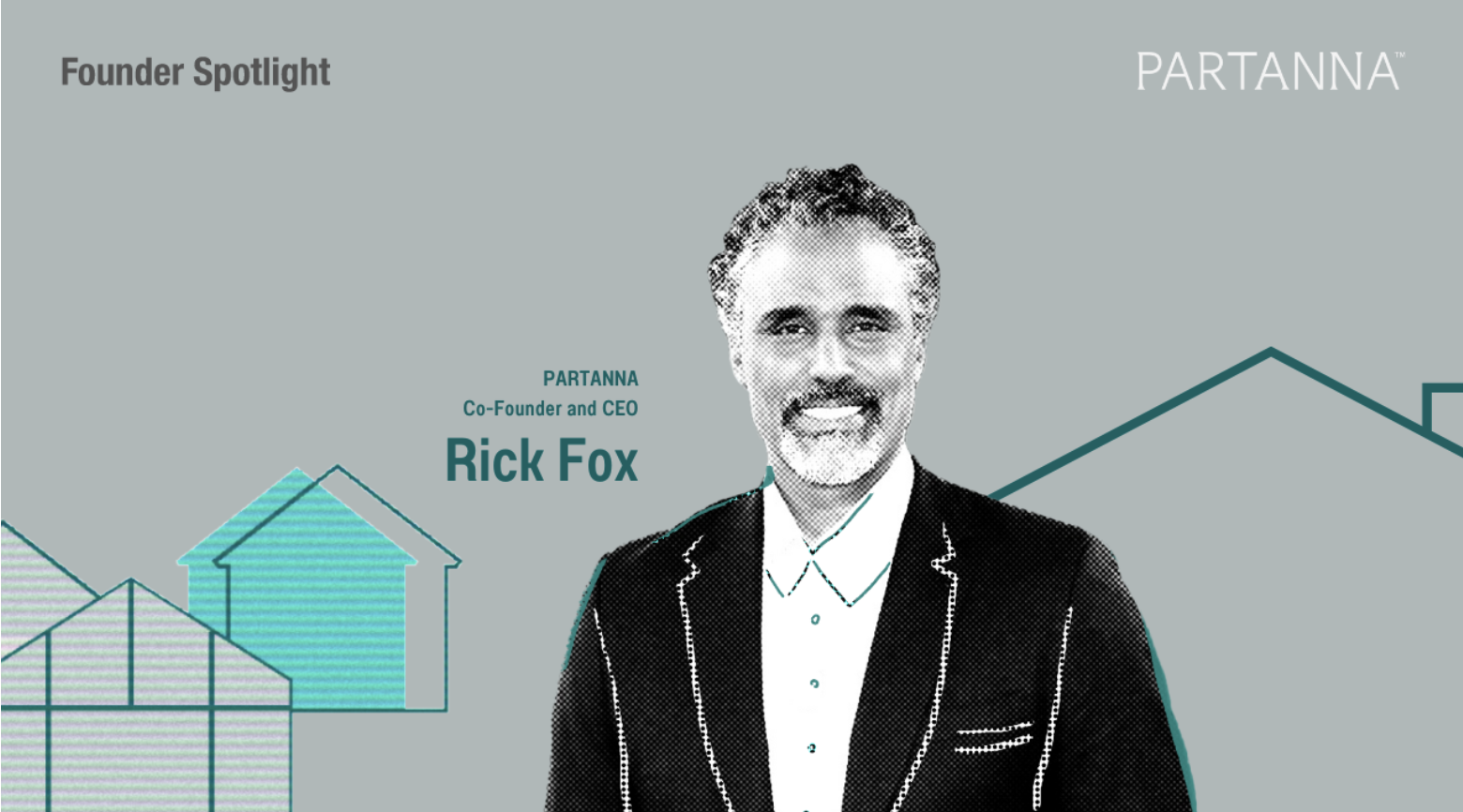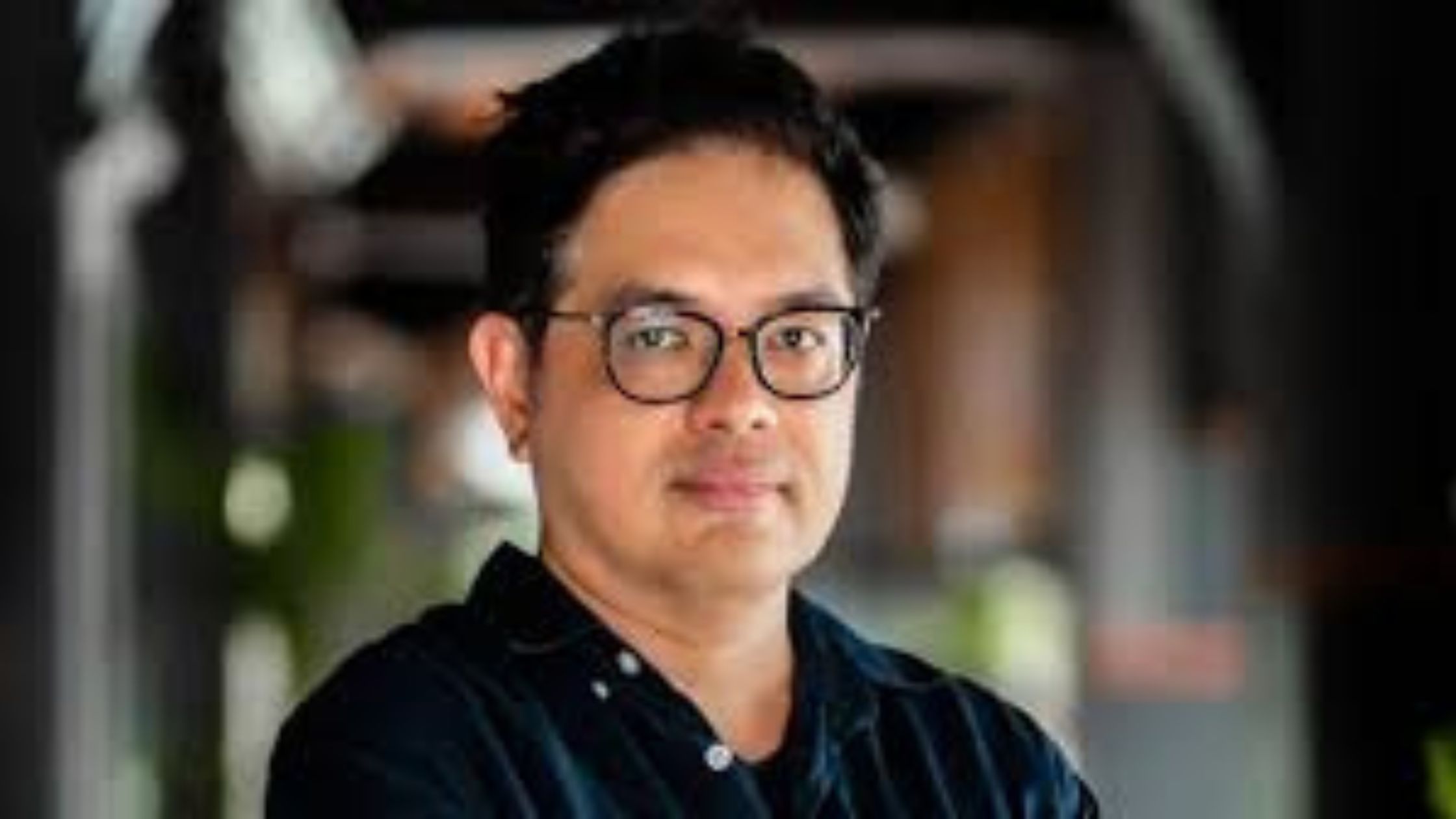AsiaTechDaily – Asia's Leading Tech and Startup Media Platform

Vinnie Lauria, Founding Partner Of Golden Gate Ventures- Empowering The Audacious Through Human And Financial Capital | 30+ Companies | 7 Countries In Asia!
Vinnie Lauria, is an entrepreneur turned venture capitalist. He is a founding partner of Golden Gate Ventures, an early-stage VC firm in Southeast Asia with US$250M AUM and 60+ investments to date. He is a Kauffman Fellow and a guest lecturer at the National University of Singapore. He was rated by the Founder Institute as the highest startup mentor in Asia from a pool of 2,500 mentors.
Before setting up Golden Gate Ventures, Vinnie built two startups in Silicon Valley: Meetro, a location-based chat service dissolved with many lessons learned in 2007; and Lefora, a forum hosting platform that grew to over 100,000 communities and was acquired by CrowdGather in 2010. He founded the Silicon Valley NewTech meetup, featuring hundreds of startups to a monthly audience w/ more than 10,000 members.
Earlier in his career, Vinnie spent four years within IBM, helping to shape how IBM approached social software for the enterprise. Vinnie is a graduate of Boston University’s College of Engineering. Vinnie is passionate about building startup ecosystems and joined his first startup while still in high school.
Golden Gate Ventures is an early-stage venture capital firm in Southeast Asia. Started in 2011, they’ve made over 27 investments across two funds to date with some notable investments including online grocer Redmart, p2p marketplace Carousell, and SaaS company Tradegecko. They’ve brought in great investors into their portfolio, including Sequoia, Bessemer, and Accel.
In an exclusive interview with AsiaTechDaily, Vinnie says:
I feel like I have an internal flame/ fire that pushes me to do things and keeps me up at night for things that aren’t done. I don’t know where it comes from, but it’s what pushes me. I’ve tried to build a team at Golden Gate Ventures of people just like that. They have this internal fire that pushes them and makes them grow and do better things. When I do get demotivated (or even a little sad), I turn to my kids – my little girl’s smile always brings a smile to my face.
- Failure is a good thing. You can only learn through mistakes. A baby learns to walk by falling. Kids learn to play video games by getting shot and killed. Mistakes (or failures) are a positive thing. It’s part of the learning path
- What my dad always taught me, which is that: “You can do anything you put your mind to.” Because of him, I truly believe that you really can do anything in this world that you want to. If you put your mind to it, you can move mountains
- Be kind and be happy
Read on to know more about Vinnie Lauria and his journey.
What background and domain expertise do you have?
Vinnie Lauria: I’m a 2-time former entrepreneur turned investor. I’m the founding partner of Golden Gate Ventures, an early-stage VC firm in Southeast Asia with US$250M AUM and 60+ investments to date. I’m also a Kauffman Fellow and a guest lecturer at the National University of Singapore. I was rated by the Founder Institute as the highest startup mentor in Asia from a pool of 2,500 mentors.
Before setting up Golden Gate Ventures, I built two startups in Silicon Valley: Meetro, a location-based chat service that was dissolved with many lessons learned in 2007; and Lefora, a forum hosting platform that grew to over 100,000 communities and was acquired by CrowdGather in 2010. I founded the Silicon Valley NewTech meetup, featuring hundreds of startups to a monthly audience w/ more than 10,000 members.
Earlier in my career, I spent four years within IBM, helping to shape how IBM approached social software for the enterprise. I graduated from Boston University’s College of Engineering. I’m passionate about building startup ecosystems, and I joined my first startup while still in high school.
When did you first think about starting a fund?
Vinnie Lauria: I wasn’t planning to start a fund. I was traveling through Asia, a one-year backpacking trip for my honeymoon. While traveling, with the interest of reaching out to locals for dinners/drinks, I used my tech network from the valley and connected with startup folks across many Asian countries, including Korea, China (Beijing, Shanghai), Singapore, India, Indonesia, Thailand, etc. I met my co-founder Jeff Paine on my first trip through Singapore. He kept inviting me back down to Singapore over this one year of backpacking travel. Every time I came back, I got more excited. I had the ability to then compare Southeast Asia to Korea and China to India’s startup scene and realized that there’s something pretty exciting on the horizon. China has already hit that, but Southeast Asia was just about to. And so that was 10 years ago. I’m still very bullish in the next 10 years.
What kind of startups/ sectors have you invested in till now?
Vinnie Lauria: Our thesis has not changed since day one, which is to invest in Southeast Asia’s rising consumer class. Just like you might have done that in China 15 years ago, as you had people getting a university education, moving from villages into cities, working at factories then earning a higher income, and spending that income, that fueled Tencent’s growth with gaming and Alibaba with commerce. And so that has been our thesis here in Southeast Asia. It has taken us across all sectors such as e-commerce, payments, logistics, Health-tech, Fintech, Edtech, etc. For logistics, the consumer may not be familiar with the brand that’s involved in getting their package from a warehouse to their house, but that is an area/ sector that is growing because of this increase in consumer demand (online and offline). Also, everything we invest in needs to have a technology component. Usually, there’s a mobile app or software, something behind it that allows it to scale and grow faster than a normal business.
What types of companies do you look to invest in? And What’s your mental model for investing?
Vinnie Lauria: It has to be unique to Southeast Asia. There are a lot of global companies started around the globe – in Asia, in the US. I tend to think of Silicon Valley as a platform that benefits a global company in terms of capital and talent. For us, we’re really looking for something unique to Southeast Asia.
While we make investments in Korea and Japan, there needs to be a tie to Southeast Asia. Does the company have something that would work really well in Southeast Asia? And could we be a partner to help take it there? We’ve looked at companies, and we’ve made investments such as My Music Taste in Korea, where when they started, they were about finding K-pop fans and then bringing a band to that specific region. We were able to uniquely help with intros in Southeast Asia to a number of our partners, our LPs, media companies, etc. We were able to make several introductions that helped My Music Taste land some business deals in places like Thailand and Indonesia. That was what got us pumped about investing. If we can actually add value, then we’ll write a check.
What is your typical investment range, and how many startups you invest in per year in general? Additionally, can overseas headquartered startups get funding from you?
Vinnie Lauria: We have both an early-stage fund and a growth stage fund (with Hanwha). Our early-stage fund typically invests in companies raising USD1-5M. Our growth stage fund typically looks at companies raising USD15-30M.
What would be the KPI that you usually check about the startups’ growth? It may be diverse in each industry like LTV, CAC, MoM, etc., but it will be helpful to understand more about your additional investment factors.
It depends on the industry, but I think the universal quality here is how KPI changes over time. If it’s around monthly active users, is it growing by 5% to 10% a month? If it is around gross merchandise volume, is that growing by 10 to 15% a month?
The most important universal KPI for us is that Delta – 1) What does that growth look like over time? 2) Can the founders explain it? Do they know where it’s coming from? 3) Is it consistent? And that’s why you need to have a few months of traction. Do we believe it can be consistent going forward, that with more money, you could actually accelerate that because you’re hiring more talent, you’re spending more, etc.?
How do you handle this COVID-19 outbreak situation for your fund’s survival in the future?
Vinnie Lauria: I think it’s really about how did/does the portfolio adapt under COVID. So for the past year, we’ve taken a warlike mentality to this. We created something we call the “war-room,” and it’s basically to spend time identifying and helping portfolio companies that need the most support. This may be because the company was doing well, and they expected to do large fundraising last summer, which got thrown out the window. Now they need to make cuts to extend their runway.
We had companies like that, and we worked really closely with them to make not only staff cuts but salary reductions across the board, including management. I’m happy to say that they’re now in a very successful position for one company because of it. They lost some growth, but it’s given them a lot of time. There’s other companies that had to make substantial pivots to their business model, like Sampingan in Indonesia, which had a heavily offline model, onboarding retail to online services/apps. They had to pivot to more online offerings that enterprises can use completely. They’ve done that successfully and just did another fundraiser off of it.
Lastly, we’ve had companies that, because of COVID, have grown incredibly fast, such as RedMart, an online grocery store, and Alodokter, a telemedicine platform in Indonesia.
Right after being an investor like in the early days, there must be some tough times in building up the first fund along with building up a second fund or giving back the good returns to those LPs. If there is any similar tough time like this, please tell us more about it and how you (or your team) overcome the difficult times.
My tips for starting the first fund would be to start small. It’s much better to have a smaller fund, get that up and running, start making investments, build your brand, build your track record, … Then go back out and raise your second fund sooner (like two years later).
Additionally, Do you have advice for anyone looking to start a fund?
Vinnie Lauria: For anybody who wants to be an investor, I would say if you want to be an angel investor or do you want to be a VC? Several people have well-paying corporate jobs (never founded/sold a company), just been middle-management at a big corporate. Still, they have enough that they can write USD25,000 checks and be an active angel investor.
The second part is that if you are starting a VC, it’s a very saturated space. There are a lot of VCs out there. What is your unique value proposition? What new are you bringing to the table that is different, is special to you? Maybe it’s your previous operational experience. Maybe it’s an LP that you have that’s willing to fund you and anchor you. Maybe it’s a corporate network that you have for distribution. For me, it was my Silicon Valley network and, more importantly, my Silicon Valley experience building two companies in the Valley and then launching a VC firm that was among the first in Southeast Asia.
What mistakes do you see founders make when raising money?
Vinnie Lauria: A big mistake that I made was thinking my startup is “a good idea,” Therefore, all investors want to invest in me. The reality is VCs have a thesis, and we have themes that we look for. If it’s off-thesis, we’re not going to invest even if it’s a great idea. We say “no” to great ideas hundreds of times a year because it’s outside our thesis. As an entrepreneur, I never really understood that thesis-driven approach, and now I do. So it’s really good if the entrepreneur asks the VC what their thesis is, what they’ve invested in before, and what they like.
The second mistake I see founders making in raising money is not knowing how to run it as a process. Knowing how to align outreach, so you’re having early conversations all at the same time, and then those next stage conversations are also happening all at the same time. Thus creating momentum and interest to close it. It’s vital to do this in parallel, at the same time, and not hit a few VCs, wait for them, and then start over with other VCs. It would help if you planned for the phases and start with Phase 1 all at once. I recommend, though, talking to a few VCs first that you probably will not get investment from – to practice your pitch before you do the big push to everyone.
What’s your advice to entrepreneurs who have a chance to meet investors like you? What are the top 3 questions that you always ask the founders?
Vinnie Lauria:
- What is the problem you’re solving? And if you can’t explain it to me in two sentences and simple words, that’s a bit of a red flag for me. Sometimes I actually ask entrepreneurs to pretend like they’re explaining it to their parents. How would you explain it to them? And if the entrepreneur still can’t do it, that’s a big turn-off for me.
- Why are you doing this? What motivated you to start this? Why are you the unique person or persons to be starting this company?
- How long have you known each other? What ups and downs as founders have you been through?
What’s your general thought about the term “Global,” and What are the important factors (criteria) for local startups to consider for international expansion?
Vinnie Lauria: I think going global is really difficult. Even coming from a platform like Silicon Valley, people don’t think global from day one; they’re thinking of a giant market like the US. A startup in Beijing or Shanghai doesn’t think global from day one, they’re thinking of a giant market in China. I think it’s tough to do global from day one, whether you’re a startup or a VC.
For a Korean startup, it is precious to think outside of Korea from day 1; that doesn’t mean global means to think about what your second market is and when? Where’s that next country I’m going to? I think a market like Singapore is great for expanding from Seoul. Or going from Seoul to Hong Kong or Tokyo, I would think about that second market and not about being global.
What kind of startup or tech industry will impact the world in the future, like 2-3 years locally, in your view?
Vinnie Lauria:
- AgriTech (agricultural technology) – I think this is more than two or three years. I think over the next 10 years; it’s going to be huge in Southeast Asia. There’s good examples like e-fishery in Indonesia for fish farms. We’re looking at several companies that bring tools, services, and technology to the old school, agriculture/ business farming, and changing that. I think that’s going to create a huge impact.
- Logistics – whether it’s shipping, driving, or delivering packages, I think over the next 5 years, there’s going to be a lot of innovation and many impacts that will happen there.
- The Future of Work – how employees are employed, the type of work they’re doing, where they are doing it. I think there’s going to be major shifts that will be very impactful over the next few years.
What are the top-three books or movies (TV series) that changed your life and why?
Vinnie Lauria:
- I Can’t Make This Up: Life Lessons by Kevin Hart – very inspirational and amazing life lessons that apply to any entrepreneur.
- Influence: The Psychology of Persuasion by Robert B. Cialdini Ph.D. – it gives insights into behaviors and how people do what they do, which is really important if you’re building a business, whether it’s for onboarding customers or for managing a team.
- What Should I Do with My Life by Po Bronson – which basically says that many people seem to get this idea that they have a passion in life and they’ll work really hard doing something else to earn enough money to do their passion. The reality is that doesn’t happen. As you work harder and you build your career, you don’t break out of it. If you have a passion, go for it early on, and don’t do something else to support it. Just go straight in.
How do you keep yourself motivated every day?
Vinnie Lauria: I feel like I have an internal flame/ fire that pushes me to do things and keeps me up at night for things that aren’t done. I don’t know where it comes from, but it’s what pushes me. I’ve tried to build a team at Golden Gate Ventures of people just like that. They have this internal fire that pushes them and makes them grow and do better things. When I do get demotivated (or even a little sad), I turn to my kids – my little girl’s smile always brings a smile to my face.
What are the top three life lessons that you want your (future) sons and daughters to know?
Vinnie Lauria:
- Failure is a good thing. You can only learn through mistakes. A baby learns to walk by falling. Kids learn to play video games by getting shot and killed. Mistakes (or failures) are a positive thing. It’s part of the learning path
- What my dad always taught me, which is that: “You can do anything you put your mind to.” Because of him, I truly believe that you really can do anything in this world that you want to. If you put your mind to it, you can move mountains
- Be kind and be happy
What would you like to be remembered for?
Vinnie Lauria: Stories that provide great memories and an opportunity to laugh. 🙂
You can follow Vinnie Lauria here.
Are you looking to secure investment for your startup or a keen startup enthusiast, keep an eye on our interview section.
Follow Asia Tech Daily to know about the innovative startups and how they are revolutionizing the ecosystem.





